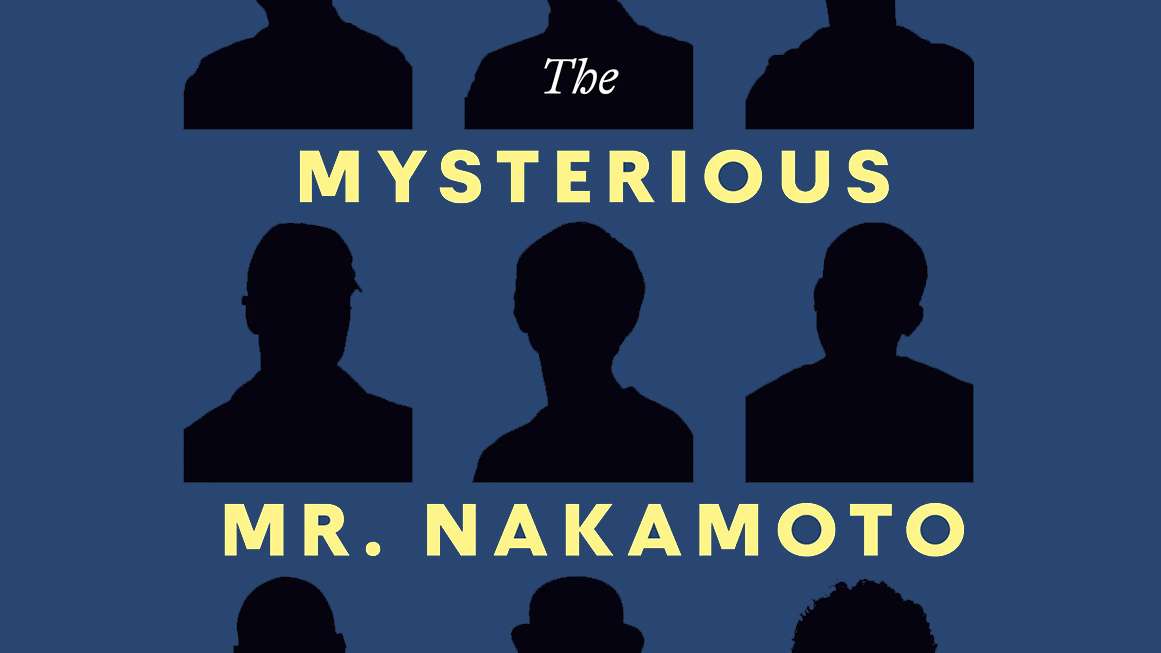A new study finds that heterosexual men exposed to sexy pirates may rate their real-life romantic partners less favorably afterward.
Meanwhile, men and women exposed to the Hollywood blockbuster Pirates of the Caribbean may feel more secure in their relationships than people exposed to G-rated Claymation pirates. And Pirates of the Caribbean watchers may also feel more attached to their partners than folks who watch either porn pirates or their Claymation counterparts.
There were no significant differences between the groups when it came to questions about sexual attitudes, identity, and values.
Why am I telling you this?
Because this study is being heralded as another sign of the negative effects of pornography. "Heterosexual men rate partners less favorably after pornography exposure," states a recent PsyPost headline. And with this framing, it will almost certainly be brandished by radical feminists and other anti-porn campaigners who seek to limit the legality of sex work and curtail free expression online.
But it would be a mistake to take this study as a simple confirmation that porn makes men view their real romantic partners less favorably. When you look at the study as a whole, it doesn't easily conform to the familiar narrative about porn warping men's sexuality and destroying relationships.
How the Study Was Conducted
The study—titled "Shiver Me Timbers! Effects of Pornography Viewing on Partner, Relationship, and Sexuality Outcomes"—was published in the journal Sexuality and Culture in July. Lead study author Alicia McLean, of the University of Central Oklahoma, recruited 144 participants online and randomly assigned them to watch either 30 minutes of Pirates of the Caribbean: The Curse of the Black Pearl, 30 minutes of the animated pirate film The Pirates! Band of Misfits, or 30 minutes of an X-rated 2005 film called simply Pirates. Afterward, they were given a lengthy and detailed survey about their sexual needs, values, orientation, drive, and fantasies, what factors make for "great sex," and how they feel about their current romantic partner and relationship.
After reading the paper, I'd like to raise a few caveats to the conclusion that watching porn generally makes straight men value their real-life partners less.
First, it's hard to know if the findings in this study would universalize—that is, apply outside of the particular conditions or people involved in this study. All participants were recruited online. They had to agree to participate in a 60- to 90-minute study for nothing other than the possibility of winning a $25 Amazon gift card in a drawing. And they had to go into this knowing they might be exposed to pornography and they would be expected to answer intimate questions about their sex lives and sexual desires. It's possible the type of people willing to do this are not representative of the population as a whole.
Second, the proportion of heterosexual men in the study group was relatively small. Only about 47 of the 144 total respondents were men. And only 55 percent of the group overall (including men and women) identified as exclusively heterosexual.
Do Straight Men View Partners as Less Hot After Watching Porn?
Among the findings was the bit I opened with here: Heterosexual men who were randomly assigned to watch pirate porn rather than another pirate-themed movie wound up rating their romantic partners a bit lower on attractiveness to themselves and others.
Partner perception was measured using three questions: how attractive do you find your romantic partner, how attractive your romantic partner is to others, and how desirable your romantic partner is to others as a date. The highest score for each question was nine, so the highest possible score for all three questions was 27 points and the lowest possible score was three. On average, people in the porn group had a partner perception score of 18.8, compared to 22.2 for the The Curse of the Black Pearl group and 21.5 for the animated film group. For heterosexual men alone, the scores were 16.9 for the porn group, 21.75 for The Curse of the Black Pearl group, and 22.39 for the animated film group.
So one might look at this and conclude that, indeed, porn makes some people see their real-life romantic partners as less attractive. But it's possible that the discrepancy is the result of exposure to attractive and sexualized women, not porn per se. We don't know that similar results wouldn't result from straight men viewing Sports Illustrated's swimsuit edition, or the reality show Temptation Island, or the now-notorious Sydney Sweeney jeans ad.
We should probably keep in mind, too, that we're talking about people's answers to these questions immediately after they viewed porn (or other media). So any results could be short-term, not necessarily long-lasting changes in attitude. I'd be really curious to see a study like this that measured responses an hour or a day or a week later as well.
"Additionally, several important individual difference variables—such as relationship length, attachment history, and prior pornography use—were not controlled in the main analyses," notes McLean in the paper, "and their omission may obscure moderating effects that could help clarify variability in responses."
Watching Pirates of the Caribbean Makes You More Securely Attached?
So, maybe porn affects men's perceptions of their wives' and girlfriends' attractiveness, at least in the short term and to a small degree. Maybe this finding is a product of the particular kinds of people who partook in the study and other factors.
I think what's most damning here to anti-porn narratives is what the study didn't find about porn—and what it did find about other media viewing.
"Pornography exposure did not significantly affect any of the sexuality-related outcomes," the paper states.
That means that watching porn was not linked to significantly different views on sexual desire, sexual permissiveness, sexual identity, or anything else related to sex, compared to people who were not assigned to watch porn.
Some of the other findings—Pirates of the Caribbean: The Curse of the Black Pearl makes people feel less relationship insecurity? Claymation pirates spur attachment issues?—suggest that maybe this research is just a little bit silly. Or that there's some noise going on here. Or at least that something about the content, other than its porn or not-porn status, is affecting participants.
The study found a range of positive outcomes linked to watching The Curse of the Black Pearl, which was dubbed the action control clip. "Individuals who viewed the action control clip reported lower partner uncertainty than those who viewed the Claymation clip, lower attachment avoidance than those who viewed either the pornography or Claymation clip, and stronger beliefs in relationship growth than those who viewed the pornography clip."
People who watched the porn clip had more relationship uncertainty than those who watched The Curse of the Black Pearl, but they were about on par on this measure with people who watched the animated clip. Those who watched the animated clip had the lowest scores for liking their partners.
What Does Previous Research Say?
Previous research on whether watching porn changes views of real-life romantic partners is mixed.
The idea that it does gained credence from a 1989 study conducted by researcher Douglas Kenrick. He reported that exposure to nude centerfold models reduced men's ratings of their partner's attractiveness and of their love for their partner more than occurred when men were exposed to abstract art images.
But a 2016 study—published in the Journal of Experimental Social Psychology—could not replicate the 1989 study's findings.
"We conducted three preregistered, high-powered close replications, and meta-analyzed the effects of the original and replication studies," write the authors of the 2016 study, titled "Does exposure to erotica reduce attraction and love for romantic partners in men?"
"We did not find support for the original finding that exposure to attractive images of opposite-sex others affects males' ratings of their partners' sexual attractiveness or love for their partner," they concluded.
McLean, the author of the pirate porn study, cited both the 1989 and the 2016 study in explaining the purpose of her new research. She posited going in that watching porn would not lower people's perceptions of their partners but would "negatively affect perceptions about relationship satisfaction and certainty and increase favorable attitudes towards sexual exploration."
You can find raw data from McLean's pirate porn study here.
More Sex and Tech News
• A guide to understanding artificial intelligence as "normal technology" to be treated like "other powerful general-purpose technologies"
• It's time for us all to stop getting carried away with Jeffrey Epstein conspiracy theories, argues Sam Kahn at Persuasion. "I'm not saying there's nothing at all there. Epstein was duly convicted for (with help from Maxwell) procuring prostitution from minors and before his death was facing charges for trafficking and conspiracy to traffic minors," notes Kahn. He continues:
But as reporter Will Sommer, a conspiracy theory specialist, contended in an interview with Ezra Klein: "I think it's very possible that Jeffrey Epstein was a guy with a lot of powerful friends who was incidentally a pedophile, and that these powerful people were not involved with that aspect of his life." Or as Maxwell said from prison (with all due disclaimers applying): "A [powerful] man wants sexual favors, he will find that. They didn't have to come to Epstein for that."
Stick with what's actually proven about Epstein—as opposed to the more far-flung insinuations—and the story cuts itself down to size very quickly.
• A federal appeals court this week is considering an Indiana law that, among other things, punishes the "aiding and abetting" of a minor seeking an abortion without parental consent. "At least two U.S. appeals court judges considering whether to revive [the law] questioned whether the law went too far in limiting speech," reports Reuters:
During oral arguments at the Chicago-based 7th U.S. Circuit Court of Appeals on Tuesday, two of the three judges on the panel seemed to agree with Planned Parenthood that the law improperly restricts its providers' speech by punishing those who give minors information about where they can receive an abortion without their parents' consent.
• "New data from the UK's age verification rollout provides hard evidence of what internet governance experts have been warning about for years: these laws don't protect children—they systematically drive users from regulated, compliant platforms to unregulated, non-compliant ones while accomplishing nothing except creating a massive privacy surveillance apparatus," writes Mike Masnick at Techdirt.
• Even if President Donald Trump's birthday letter to Jeffrey Epstein is "fake," as Trump says, The Wall Street Journal publishing it is not defamatory, Reason's Jacob Sullum writes.
• A YouGov survey of 18- to 29-year-olds in Great Britain finds young women are more likely than young men to fantasize about being choked or having a partner grab their throat during sex. Meanwhile, British lawmakers are talking about banning depictions of such activities in porn.
Today's Image
 No pirates in sight. | Nantucket County, Massachusetts | 2014 (ENB/Reason)
No pirates in sight. | Nantucket County, Massachusetts | 2014 (ENB/Reason)
The post Pirate Porn Study Finds No Difference in Sexual Attitudes After Seeing X-Rated Video appeared first on Reason.com.













 Bengali (Bangladesh) ·
Bengali (Bangladesh) ·  English (United States) ·
English (United States) ·